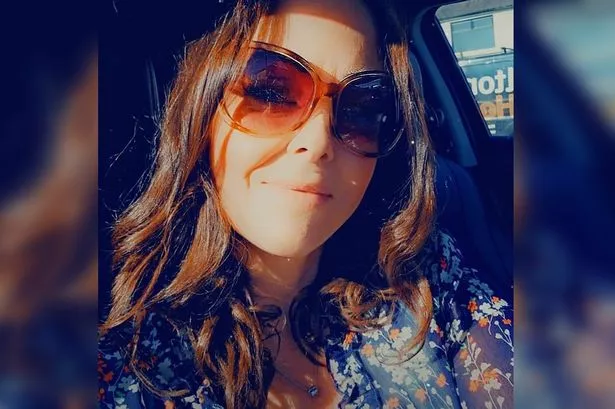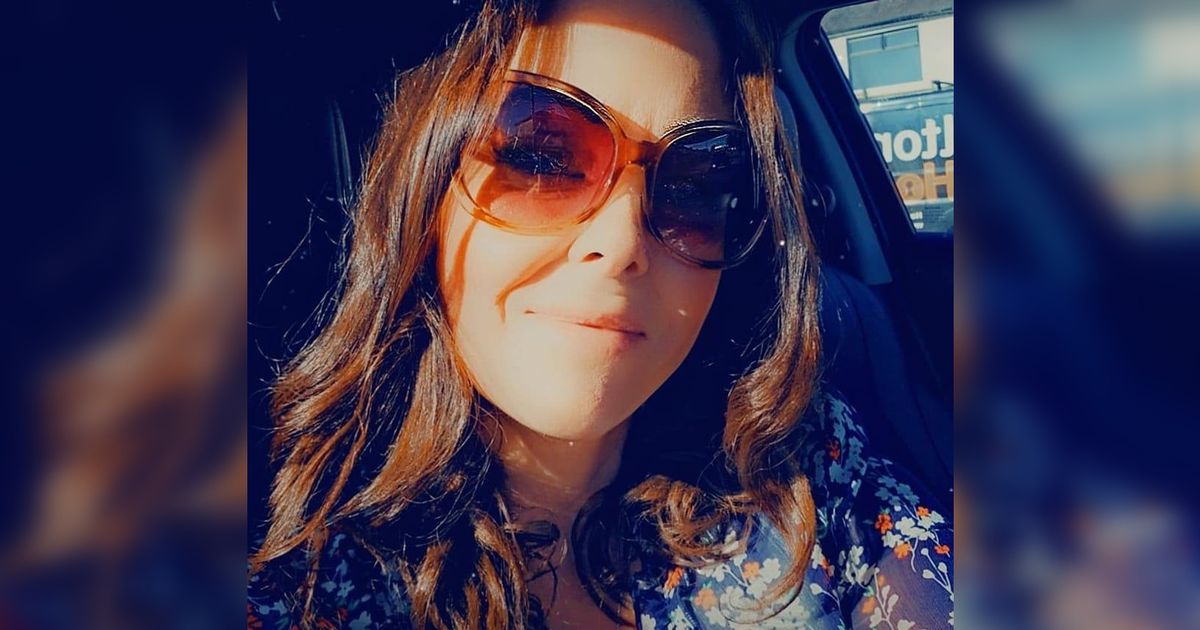Deanne was described as an “amazing mum” who “adored her kids”
07:39, 16 Apr 2025Updated 13:18, 16 Apr 2025
 Deanne Clarke(Image: Facebook)
Deanne Clarke(Image: Facebook)
A mum-of-four told her husband she loved him before she went to sleep and never woke up. Deanne Clarke, 41, was described by her family as “an amazing mum” who “adored her kids”.
Her husband Allan said: “She was very strong – stronger than she thought. In her work life, she came out of school with nothing and worked really hard to get diplomas. She had a lot of strength and willpower. She was a really clever woman. She just didn’t think she was.”
Mrs Clarke, a social care manager and mum-of-four, was found unresponsive in bed at her Wallasey home on January 7 this year. An inquest into her death held at Gerard Majella Courthouse in Kirkdale on Tuesday, April 15 found she had died of an accidental overdose of painkillers following weeks of “unbearable” pain and insomnia caused by fibromyalgia, a chronic condition which causes pain, fatigue, and sleep problems.
Her husband Allan Clarke said he believed his wife had fallen into “a deep sleep” shortly before she passed away. He said: “I said ‘I love you’, (she said) ‘I love you too’, and then she laid down.
“Within minutes she had gone into a really deep sleep. It sounded like she was snoring slightly and I thought if I moved her pillow it would clear her airway. I moved her pillow and her head felt quite heavy. She went quiet. Her breathing seemed quite clear. That night she was lying quite comfortably and peacefully.”
Mr Clarke got up at 6.30am on January 7 and took one of his children to school, the court heard. When he returned he found his wife still in bed, unresponsive, at around 8.55am.
This is why The ECHO covers inquests – and it’s vital that we do
Reporting on an inquest can be one of the hardest types of stories a journalist can write.
More often than not, they are emotionally charged proceedings attended by grief-stricken people who are desperate for answers.
Sometimes, inquests can seem quite clinical due to a coroner’s need to remain impartial and level-headed so that they can draw a conclusion from desperately sad events.
As painful as these proceedings are for those who have lost a loved one, the lessons that can be learned from inquests can go a long way to saving others’ lives.
Families are often surprised – and sometimes angry – when they see a reporter in attendance.
Understandably they worry the nature of their loved one’s death will be sensationalised and that a news story will forever tarnish their memory.
Responsible and ethically minded journalists will do what they can to report inquests sensitively, while not shying away from the often upsetting facts.
It is vital that the public don’t forget that inquests are a type of judicial inquiry; they are after all held in a coroner’s court.
The press has a legal right to attend inquests and has a responsibility to report on them as part of their duty to uphold the principle of ‘open justice’.
But in doing so journalists must follow the guidance provided by the Independent Press Standards Organistion and set out in Editors’ Code of Conduct.
It’s a journalist’s duty to make sure the public understands the reasons why someone has died and to make sure their deaths are not kept secret.
An inquest report can also clear up any rumours or suspicion surrounding a person’s death.
But most importantly of all, an inquest report can draw attention to circumstances which may stop further deaths from happening.
Inquests are not criminal courts – there is no prosecution or defence – they are fact-finding tribunals which seek to answer four key questions:
- Who is the person who died?
- Where did they die?
- When did they die?
- How did they die?
They do not apportion blame.
Once these questions are answered a coroner will be able to record a conclusion.
The wider lessons that can be learned from an inquest can have far-reaching consequences – but if journalists do not attend them how can the public be made aware?
The harsh reality is they can’t. Coroners often do not publish the results of an inquest.
Should journalists shy away from attending inquests then an entire arm of the judicial system – and numerous others who need to answer vital questions – is not held to account.
Inquests can often prompt a wider discussion on serious issues, the most recent of these being mental health and suicide.
Editors actively ask and encourage reporters to speak to the family and friends of a person who is the subject of an inquest.
Their contributions help us create a clearer picture of the person who died and also provides the opportunity to pay tribute to their loved one.
Often families do not wish to speak to the press and of course that decision has to be respected.
However, as has been seen by many brilliant campaigns run by newspapers and websites up and down the country, the input of a person’s family and friends can make all the difference in helping to save others.
Without the attendance of the press at inquests questions will remain unanswered, debates unargued and lives lost.
He said: “I thought she was in a deep sleep and had been all night, and I just left her. It was January and it was dark. It wasn’t until the schools were closed and I came to tell her, I looked at her and I knew.”
A post-mortem found fatally high levels of prescribed painkillers in her system. However, it could not be determined how or when she had taken the pills, as Mr Clarke said she was usually “very meticulous” about her doses.
Coroner Joe Hart said: “Deanne had presented to her GP on January 6 with a chest infection, significant sleep problems and significant ongoing difficulties with pain.
“I find that pain was and must have been unbearable – even putting a T-shirt on would cause this lady very significant pain. I find that she was very careful lady where it came to her medication.
“This is a lady who was very much integrated with her family, very much making plans for the future. But I also find that at some stage over the course of January 6 into January 7, Deanne consumed a greater than therapeutic amount of a painkilling drug which had been prescribed to her.
“However I have heard absolutely no evidence as to how it come to be that Deanne took more painkillers than she was supposed to… and there was absolutely no evidence that this was deliberately taken at all.”
He added: “This seems to have been simply an accident. However careful Deanne had been in the past, it’s impossible to know what the impact of days, weeks and months of poor sleep, pain and poor vision can do.”
He made a short narrative verdict which ruled the mum had died from an excessive dose of painkillers, complicated by pneumonia.
